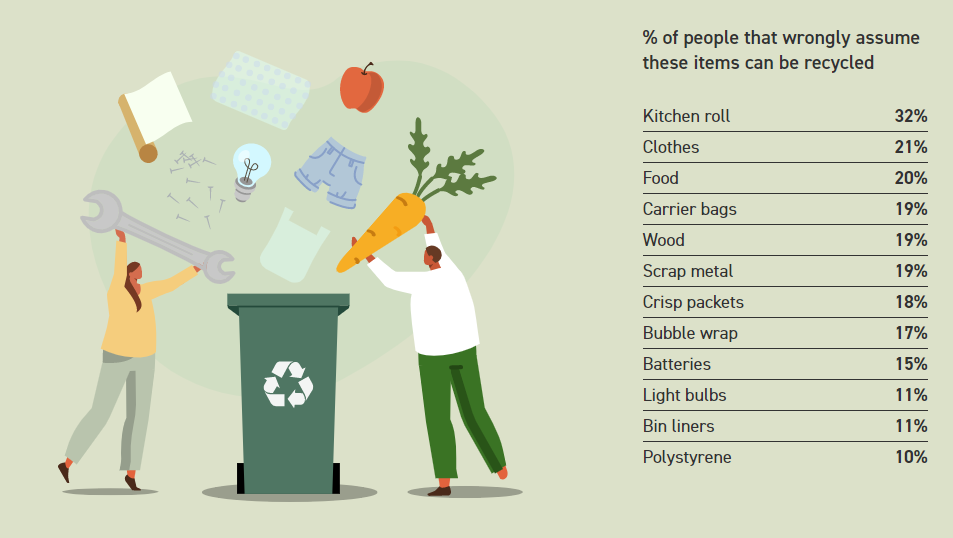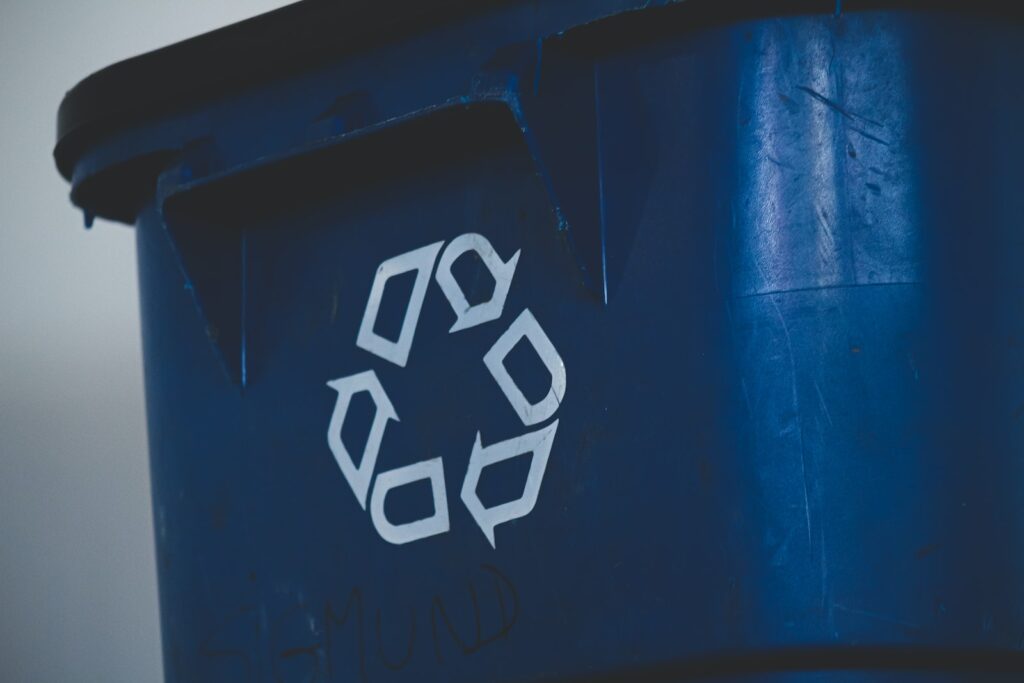English recycling record must improve, but will national scheme work?
In the wake of Global Recycling Day, Downing Street has unveiled plans for consistent national waste collection across English authorities in a bid to improve poor engagement engagement. But not everyone is in favour.
It’s already a grave situation. According to one survey by Barratt Homes, 71% of Britons believe recycling rules are too confusing. In comparison, just 8% say they are clear on what materials and items can and cannot be put back into the system for reuse, in turn avoiding landfill.
One glaring example is kitchen roll, which 32% of respondents falsely thinking this is suitable for recycling. In contrast, two in five do not know that cartons can be recycled, and three in four adults admit to putting something in their recycling bin which they are not sure is supposed to be there. The researchers have now published a list of the most common items that are wrongly believed to be recyclable, which you can see below, with the full report available online here.

However, significant differences exist between different parts of the country, in terms of what recycling capacity and capabilities are available. With this in mind, the UK Government is now proposing a switch to national waste collection schemes, bring all authorities onto the same page, in a bid to increase uptake.
Currently, the UK ranks 11th in Europe for recycling rates, above the likes of Norway, Spain and France. But, at just 44% of waste, this is still 3% lower than the continental average, and falls significantly behind Germany (67.6%), which, incidentally produces the most amount of waste in the region.
The results of a comprehensive review into recycling in England are due to be published by Defra soon. According to the District Council’s Network, the recommended changes could come in at some £465m in extra spending annually, for the first seven years.
This alone has raised concerns given budget constraints are weighing heavily on essential services. Criticism has also focused on the problem of a one-size-fits-all approach when needs vary significantly from place to place. However, policymakers have suggested this would make it easier to introduce more producer accountability.
By imposing higher taxes on products that use non-recyclable packaging, it’s likely that companies would make an effort to switch over to more sustainable options in a bid to avoid excess costs. Whether that happens or not, this graph showing the levels of incorrect recycling in the UK by age shows change is desperately needed.

One area of recycling in desperate need of improvement is electrical waste, hence a new national broadcast campaign aimed at encouraging more people to dispose of their devices responsibly. The HypnoCat adverts launch tomorrow, Wednesday 22nd March, and are the work of Recycle Your Electricals and creative agency Truant. The clip can be found below.
‘We are throwing away some of the most precious materials on the planet when unwanted electricals get binned. And this has to stop, now. We want everyone to know that they should never bin and should always recycle their electricals. Love or loathe him, HypnoCat is broadcasting on UK radio and TV screens with a mission to stop people in their tracks and to compel them to start recycling,’ said Scott Butler, Executive Director at Material Focus, which heads up Recycle Your Electricals .
Elsewhere, mobile experts at Uswitch.com have also published advice on the importance of making sure smartphones, and the rare materials they contain, do not wind up on landfill. A recent survey by the company revealed the UK is now the second highest producer of electrical waste in the world, generating 23.9kg per capita. Only Norway ranks higher, although those positions are expected to switch next year.
Tips on reducing electrical waste include opting not to upgrade mobiles, instead looking to SIM only deals – which also means taking better care of our phones to prevent damage and rapid deterioration. And, to ensure all devices are recycled properly, it’s essential to read guidance from the manufacturer and your local authority.
Earlier this month, Environment Journal published a report on the failure of vape companies to ensure responsible disposal and reclamation of recyclable materials. Read the full story on this emerging electrical waste crisis here.
Images: Sigmund (Top) / Barret Homes (Middle/Bottom)

















